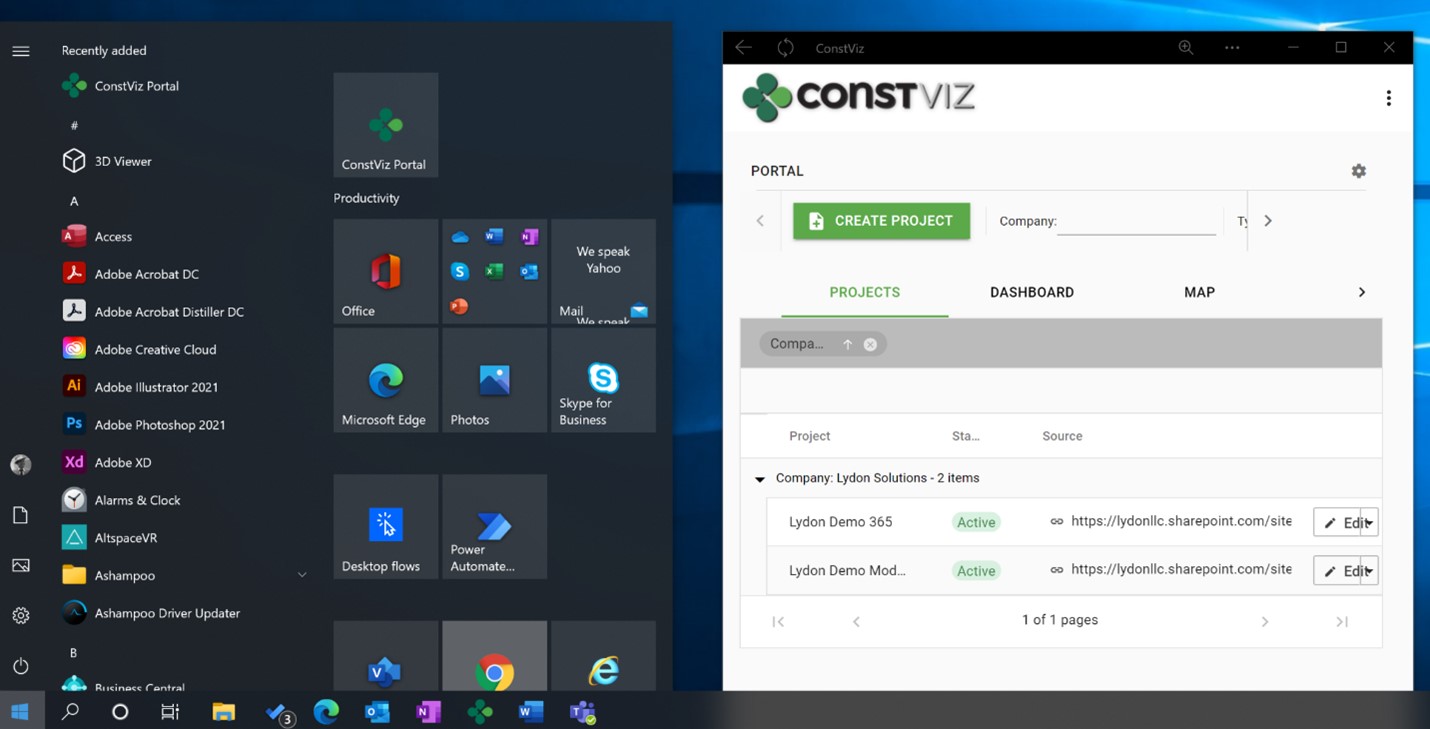Why Progressive Web Apps are the Future of Construction Project Management
From the Apple Store to Google Play, the apps you are downloading to install on your device may soon become a thing of the past. In their place, a new mobile app technology called progressive web apps (PWAs) is making moves to steal their crown. And construction organizations should be looking at adopting software solutions featuring PWA technology too.
Progressive web apps offer significant benefits over traditional single-page apps (SPAs) and websites. Many large companies, including Amazon, Google, Alibaba, and Microsoft, have already transitioned to PWA technology. This article will explain why you should also be considering PWAs if you want to deploy or develop a project management information system (PMIS).
The benefits of progressive web apps
Here are a few of the benefits of progressive web apps in a nutshell:
- Users don't have to install an app on their device, so there is no need for an app store
- PWAs are responsive across any device with a modern browser (e.g., Chrome, Edge, or Safari)
- PWAs can be up to 300% faster than a traditional website
- For developers, PWAs allow for a single code base, which is easier to manage and update
- PWAs provide access to a device's hardware such as sensors, cameras, and GPS
- The entire PWA can work offline (not just the form), allowing you to work in remote locations without internet access
- PWAs can utilize push notifications such as chat, weather updates, changes to content, and even event reminders within your operating system
- PWAs behave like desktop applications independent of the browser
Why progressive web apps matter for construction organizations
When considering whether to procure or develop your own PMIS, it would be in your organization's best interest to research PWAs to save costs, improve functionality, future proof your investment, and provide a consistent UI/UX across any device with a modern browser.
But you might ask, "If PWAs are so great, what software programs are using them right now?" While the technology is relatively new, adoption is multiplying across all verticals.
Here are just some of the mainstream web applications that you may not even be aware are PWAs:
- Microsoft OneDrive
- Starbucks
- Uber
- Spotify
- Airbnb
- Carnival Cruises
- United Airlines
- Air France
- Nordstrom
- The Washington Post
- BMW
- Yummly
- Housing.com
- Stance
- Google Meet
- Google Maps
- Android Messaging
- Facebook Gaming
- Microsoft OneDrive
- Starbucks
- Uber
- Spotify
- Airbnb
- Carnival Cruises
- United Airlines
- Air France
- Nordstrom
- The Washington Post
- BMW
- Yummly
- Housing.com
- Stance
- Google Meet
- Google Maps
- Android Messaging
- Facebook Gaming
As the names on the list suggest, major corporations that lead their industries are embracing PWAs. You probably should too.
We are all in on progressive web apps
Why does Lydon Solutions care so much about PWAs? We are technology geeks, and the more we see the evolution and adoption of powerful technology like PWAs, the more we can better serve our clients in the construction industry.
We wisely chose to build our solution, Construction Viz, as a PWA in 2017, anticipating the new technology's adoption. Construction Viz is an enterprise PMIS that integrates with your Microsoft 365, keeping your data in your environment. Knowing what PWAs can provide, you can easily see the benefits of building our Construction Viz project management solution using this technology.

Learn more about progressive web apps for your construction organization
Want to learn more about PWA technology and its application for construction project management? Check out my PWA article on the Construction Viz blog.
If you have any questions regarding PWAs or are looking for a solution to help manage your construction projects, you can request a free consultation here.

Related Posts
Struggling to Share SharePoint Files Externally? Here’s the Fix
How the New Copilot Project Manager AI Agent Benefits Construction Scheduling
Construction Document Management and the SharePoint Term Store